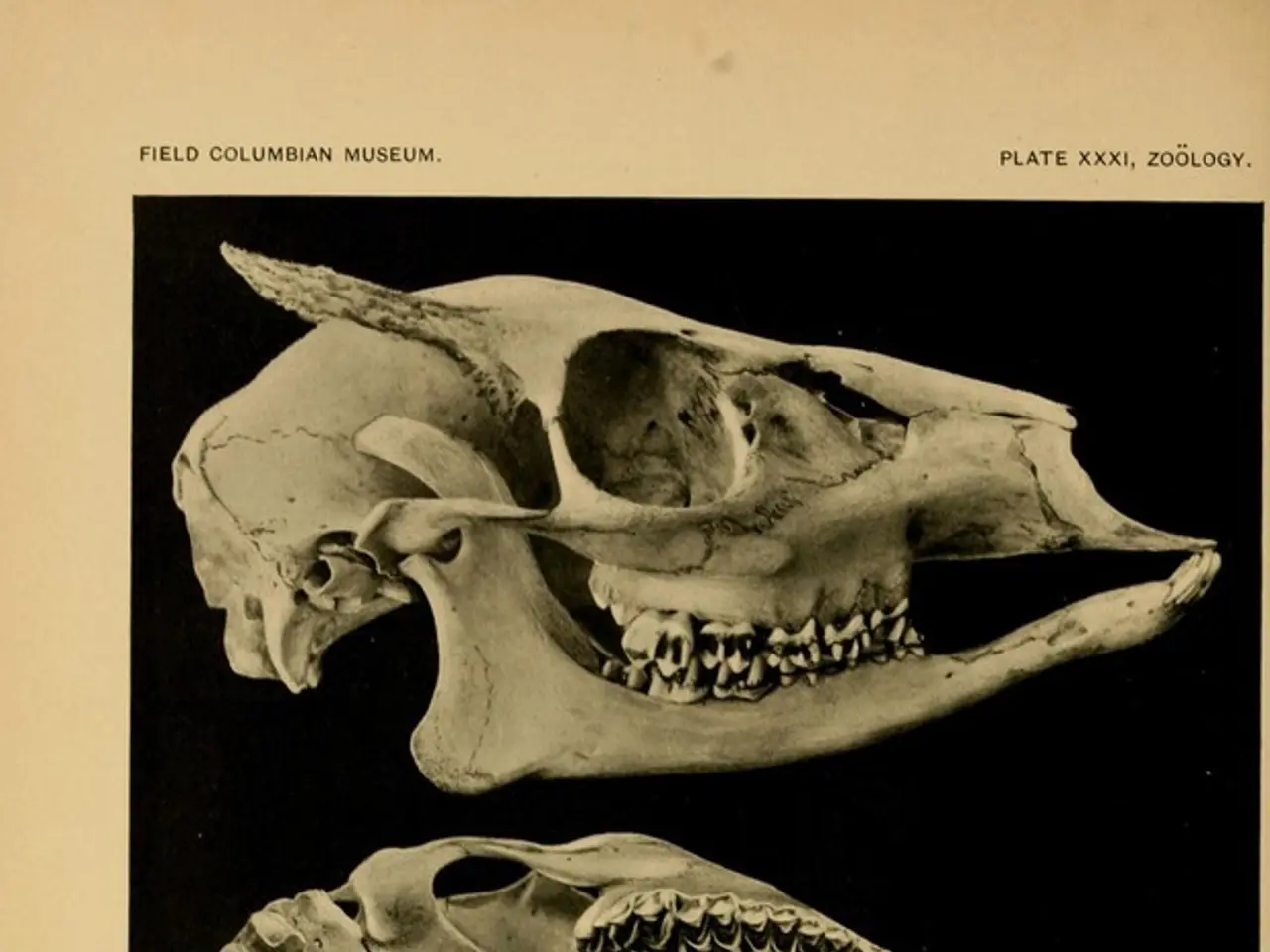Uncommon Genetic Variations Shaping the Course of Brain Aging Processes
Recent studies have shed light on the role of rare genetic mutations in the process of brain aging. These mutations, often infrequent and overlooked due to their low prevalence, have been found to significantly impact brain cells and contribute to neurodegeneration or, in some cases, offer protective adaptations.
One such protective mutation is the rare variant in the TET2 gene, which affects blood stem cells that can migrate into the brain. Research has revealed that this mutation may enhance brain resilience by influencing cells involved in brain repair or immune response, thereby offering a protective effect against Alzheimer's disease [3].
The APOE gene, involved in cholesterol transport, is another key player. This gene has three main variants—e4, e3, and e2. The e4 variant increases the risk of Alzheimer's disease, while the e2 variant decreases it. APOE mutations influence how brain cells handle damaging protein buildup linked to dementia, thus affecting neuronal survival during brain aging [4].
Rare genetic mutations can also lead to early onset or a more severe progression of neurodegenerative diseases such as Alzheimer's and Parkinson's. For instance, mutations in the APP gene related to Alzheimer's disease or the LRRK2 gene associated with Parkinson's can have profound effects on neuronal health and survival [4].
Ultra-rare neurological mutations, like those causing disorders such as alternating hemiplegia in childhood (AHC), can severely affect brain cells and lead to neurodegeneration. Recent advances demonstrate that directly editing these mutations in the brain can correct defective cells long-term, highlighting the profound impact such mutations have on neuronal health and survival [1].
Other studies have explored how mutations in genes like TREM2 affect the brain's immune response and contribute to neurodegeneration [5]. RNA editing changes, a common occurrence in aging and Alzheimer's brains, can modify brain cell metabolism and plasticity, potentially accelerating or modulating neurodegeneration [5].
Genetics plays a pivotal role in shaping our health, including the health of our brains as we age. Research has focused on families with a history of neurodegenerative diseases, identifying specific genetic mutations linked to these conditions [2]. Cognitive decline, a range of conditions affecting brain function, including memory loss, difficulty in problem-solving, and challenges in language skills, is a significant concern in the aging population.
Understanding rare genetic mutations is crucial for developing targeted therapies and interventions, offering new insights into preventing or slowing cognitive decline. These insights open new avenues for gene-editing and RNA-based therapies to modify brain aging outcomes.
Personal stories and case reports illustrate the real-world impact of rare genetic mutations on individuals and families, highlighting the challenges in diagnosing and managing conditions related to these mutations [3]. They serve as a powerful reminder of the need for personalized approaches in treating neurodegenerative diseases [3].
In summary, rare genetic mutations can have a profound, yet often less understood, impact on brain aging. By understanding these complexities, we can develop targeted therapies and interventions to combat neurodegenerative diseases and slow cognitive decline.
- Science and medical-health research have uncovered the role of rare genetic mutations in shaping brain health, impacting brain cell behavior and contributing to neurodegenerative conditions like Alzheimer's and Parkinson's.
- Some rare genetic mutations, such as the variant in the TET2 gene, offer protective adaptations, enhancing brain resilience against neurodegenerative diseases.
- The APOE gene, with its three main variants, either increases or decreases the risk of Alzheimer's disease, influencing how brain cells manage protein buildup that is linked to dementia.
- Understanding rare genetic mutations is essential for developing targeted therapies and interventions to combat cognitive decline, particularly in the aging population, offering new possibilities for personalized gene-editing and RNA-based therapies.
- Rare genetic mutations, like those causing disorders such as alternating hemiplegia in childhood (AHC) or neurodegenerative diseases, can have severe effects on neuronal health, survival, and focusing on the brain's immune response, further highlighting the need for a comprehensive exploration of these genetic complexities.




